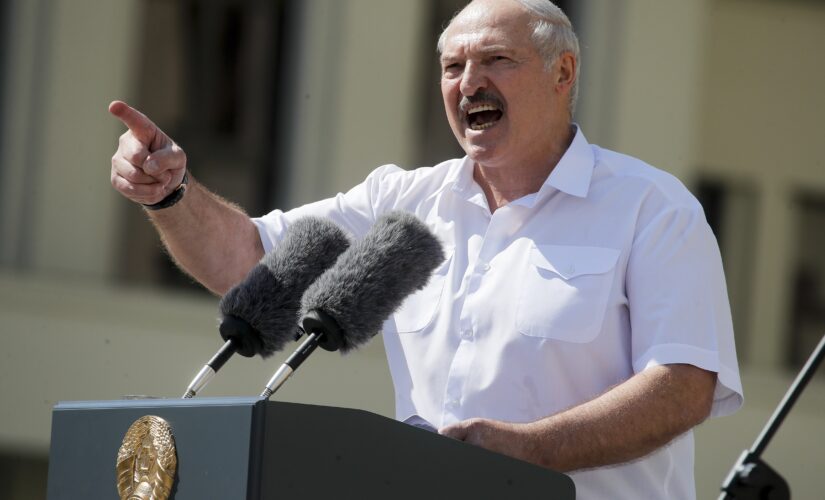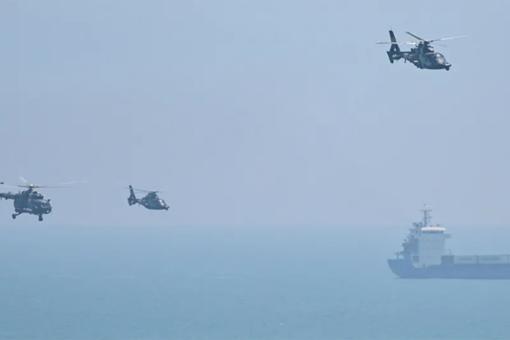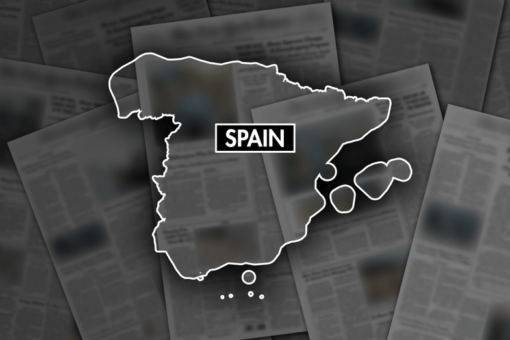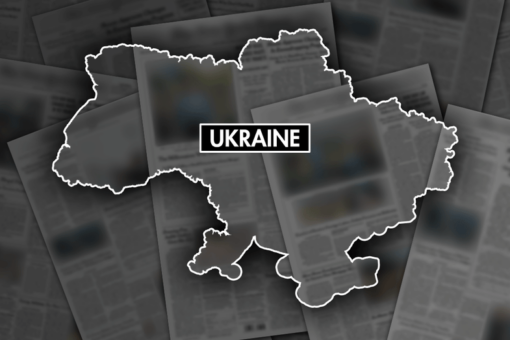Embattled migrants from the Middle East are desperate to enter the European Union but are being exploited by the Belarusian government of Alexander Lukashenko in a geopolitical gambit that is stoking major tensions within the European Union and on NATO’s eastern borders.
The migrants have been stymied at the Belarusian border as they try to make their way through Poland into Central Europe while facing tear gas and water cannons from Polish border security. Increasingly frustrated, the migrants amassed at the border began throwing stones at Polish border officials in response to their repressive tactics. Belarusian forces, meanwhile, are effectively encouraging the migrants to head to the border in a blatant move to cause trouble with an EU and NATO member state.
Europe faced a much larger wave of migrants in 2015 and 2016, mainly fueled by the Syrian civil war. The influx of migrants at that time led to a surge in support for xenophobic populist and nationalist leaders who railed against immigrants, claiming they are a threat to their national identity. Lukashenko knows this, and his ploy is to sow chaos and fear over another migrant crisis that will undermine European Union cohesion.
Migrants walk along the barbed wire as they gather at the Belarus-Poland border near Grodno, Belarus, Friday, Nov. 12, 2021. (Leonid Shcheglov/BelTA pool photo via AP)
Lukashenko is conducting this high-stakes gamble with the EU in an attempt to have a series of sanctions lifted that were imposed following the regime’s brutal crackdown of mass protests over the disputed August 2020 presidential election in which Lukashenko claimed victory with 80% of the vote and many international observers considered fraudulent. Poland is also a vocal supporter of the pro-democracy movement that emerged in Belarus and vowed to stand in solidarity with the political opposition to Lukashenko.
POLAND USES WATER CANNON ON HOSTILE MIGRANTS THROWING ROCKS AT BORDER: ‘FORCE WILL BE USED’
Many dissidents and activists, fearing retribution from the regime, fled to Poland and now live in exile. Belarusian opposition leader Sviatlana Tsikhanouskaya, considered the legitimate winner in the August 2020 presidential elections, met with Warsaw’s mayor, and Poland has welcomed other political dissidents — moves widely seen in Belarus as provocative.
Additional sanctions were imposed on Belarus in May after a Belarusian fighter jet forced the landing of a Ryanair flight carrying a prominent Belarusian dissident and frequent Lukashenko critic who was subsequently detained. No doubt, Lukashenko’s goal is to pressure Poland into lobbying the EU to lift the crippling sanctions on Belarus. The risky gamble might prove counterproductive, as the international community is weighing more sanctions on Belarus for this man-made humanitarian disaster.
Lukashenko’s exploitation of migrants for his own political gain is further emboldened by closer ties with Russia and President Vladimir Putin.
In this Sunday, Aug. 16, 2020, file photo, Belarusian President Alexander Lukashenko addresses his supporters gathered at Independent Square of Minsk, Belarus. (AP Photo/Dmitri Lovetsky, File)
Although Belarus was once a constituent republic of the former Soviet Union and has close ties to Russia, Minsk has charted a somewhat independent course from Moscow since it gained independence in 1991. At times, Minsk was seen as a neutral arbiter, hosting peace accords in 2014 to end the conflict in eastern Ukraine.
However, once it became clear Lukashenko was not going to concede defeat in the August 2020 election, he has increasingly relied on support from Vladimir Putin. Polish Prime Minister Mateusz Morawiecki laid the blame for the orchestrated border crisis squarely on the shoulders of Putin. “This attack which Lukashenko is conducting has its mastermind in Moscow, the mastermind is President Putin,’ Morawiecki told parliament.
BIDEN SAYS BELARUS-POLAND BORDER CRISIS IS OF ‘GREAT CONCERN’ AS MIGRANT SITUATION WORSENS
Belarus’ manufactured border crisis with Poland fits perfectly into Putin’s confrontational playbook with the West.
“From Putin’s point of view, this makes perfect sense,’ John Herbst, senior director of the Atlantic Council’s Eurasia Center and former Ambassador to Ukraine, told Fox News. “It discomforts the EU and especially Poland and Lithuania, active critics of Kremlin policy, and creates a second crisis at the same time he is intimating a further escalation in Ukraine. The beauty of it is that he claims no responsibility for the Belarus-Poland dust-up but might benefit from it,” Herbst added.
Russian President Vladimir Putin speaks during a meeting with high-level officers and heads of defense industry enterprises in the Bocharov Ruchei residence in the Black Sea resort of Sochi, Russia, Monday, Nov. 1, 2021.
(Evgeniy Paulin, Sputnik, Kremlin Pool Photo via AP)
As conditions worsen and migrants face brutal subzero temperatures, the dangerous escalation at the Belarus-Polish border is causing a humanitarian crisis that could spark into a wider regional conflict. Poland sent thousands of troops to enforce its border just as Belarus is beefing up its security presence at the border.
The nexus between Poland, a member of the European Union and NATO, and Belarus, a close ally of Russia and a historic adversary of Poland and NATO, makes the border standoff even more tenuous. As a member of NATO, Poland is entitled to Article 5 protection, which states an attack on one member state is an attack on all. Any Belarusian incursion into Poland, due to either provocation or miscalculation, could very well trigger the Article collective defense clause and bring the United States into a confrontation with Russia.
CLICK HERE TO GET THE FOX NEWS APP
With the risk of escalation worrying all sides, Belarusian authorities have taken some measures to ratchet down tensions. On Wednesday, border officials began to move some migrants into shelters, but it remains unclear what Lukashenko’s next moves will be.




